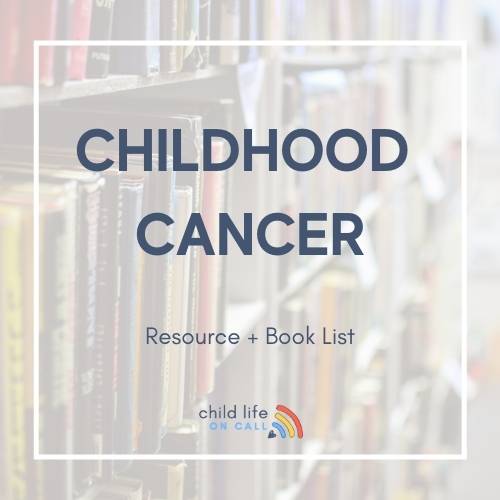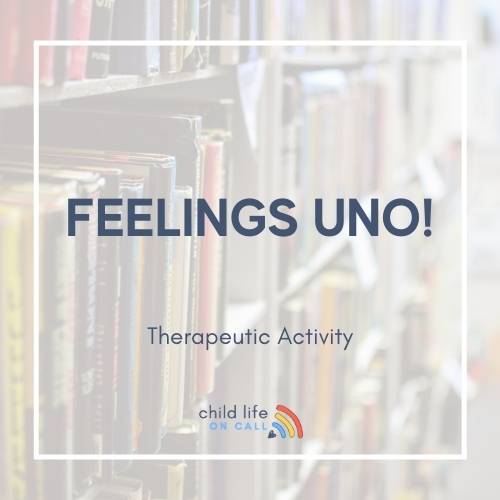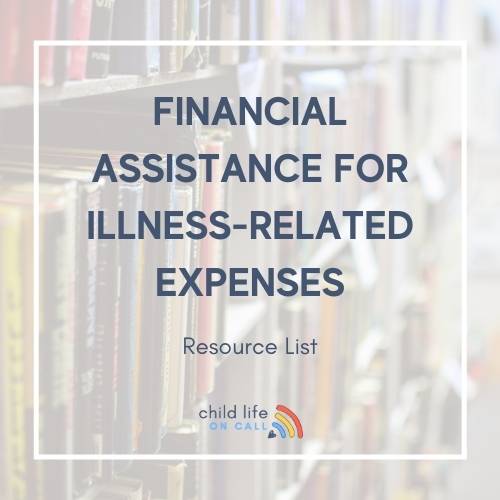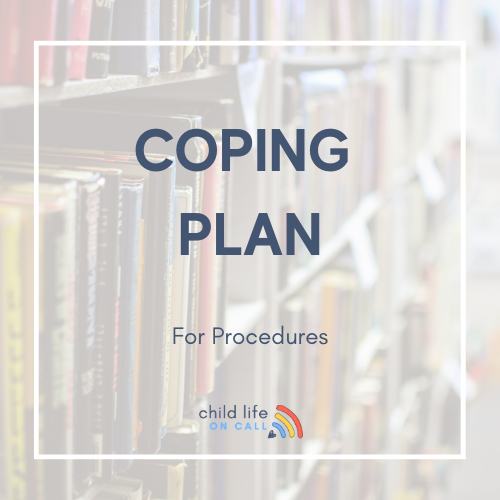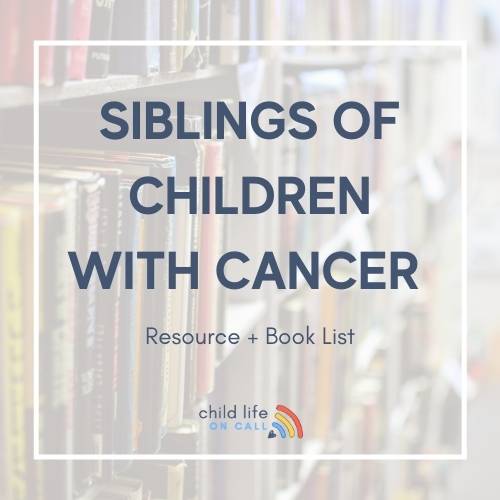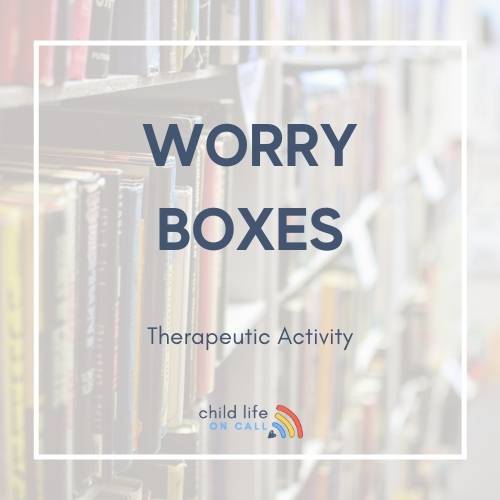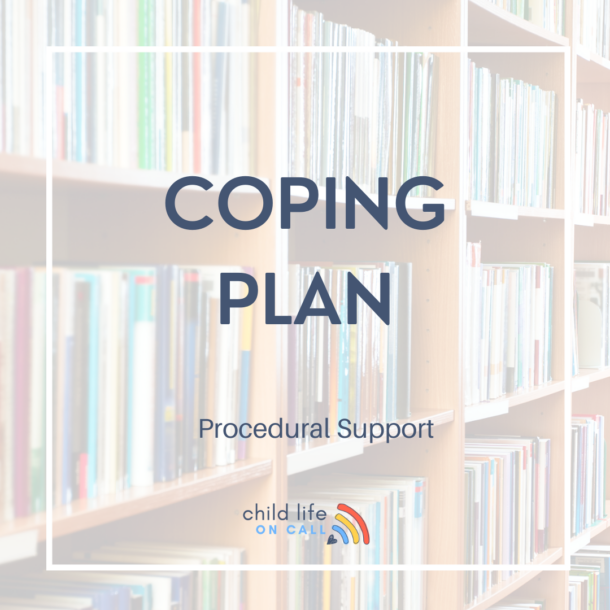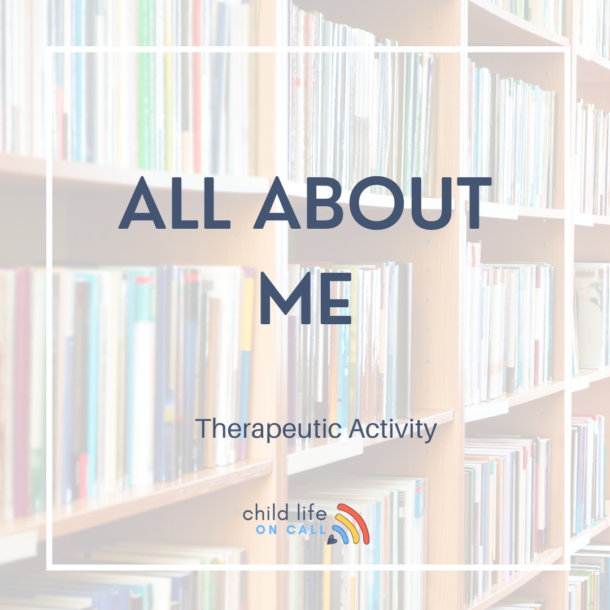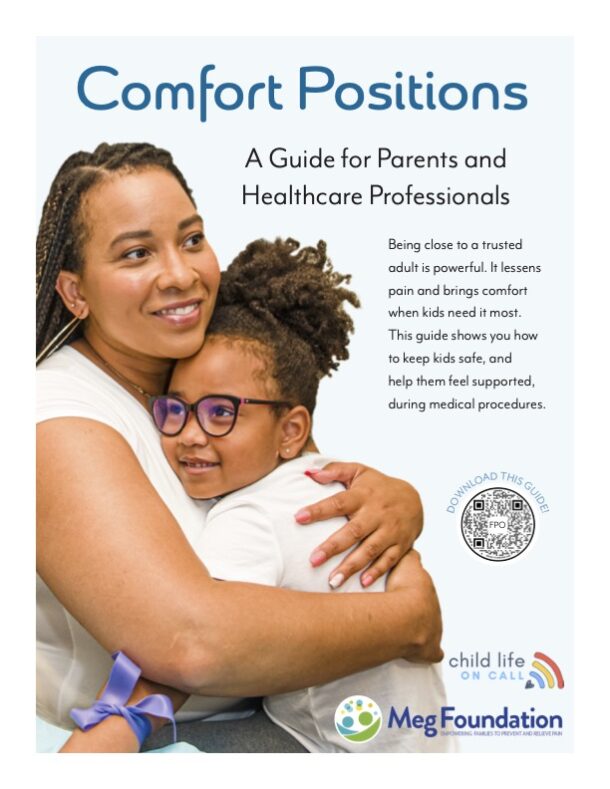"I feel like I owe it to him to explore other avenues. Acceptance doesn’t mean giving up; it means continuing to learn and adapt."- Lexi In this episode of Child Life On Call, Katie Taylor speaks with Lexi, a devoted mother of two, about her family's journey with...
Episode 112 | Sehreen’s Story: A Daughter Requires Neurosurgery
Podcast Show Notes
March is Child Life month, and I wanted to feature some amazing organizations that are doing so much to support children and families in crisis. A few weeks back, I had the opportunity to interview an expert in the field of Child Life about the impact of disasters on children and families (episode 105). Child Life Disaster Relief is an organization that empowers and supports children and families in crisis by integrating Child Life professional services into disaster-impacted communities. Learn more at www.cldisasterrelief.org.
Today I’m talking with Sehreen, who has so much wisdom to share. She is doing big things for the world of children’s health, but she is also a mom whose daughter has had some medical challenges. I’m excited for her to share her experiences with you in this episode.
In this episode, we talk about…
[2:25] Sehreen’s background and family
Sehreen lives in New York City, and she has two daughters. She started a completely different journey in her life when her younger daughter started missing her developmental milestones. Before that, she worked in education technology for a couple different companies in New York. Prior to that work, Sehreen was a diplomat and a civil servant for the State Department.
Looking back now, she barely even recognizes the first half of her life. She loves to travel, and it used to be such a big part of her job and her life. Now she doesn’t even have that component to her life anymore because of COVID, and she has become so immersed in family life over the years.
[4:11] Concerns with her daughter missing developmental milestones
Sehreen explains that they were on the “wait and see” side of things when it came to her younger daughter’s developmental milestones. Nothing was obviously “off” when she was born. About three weeks after she was born, Sehreen’s father was diagnosed with cancer and he passed away soon after. Her life was really busy, traumatic, and hectic, and her daughter came with her everywhere. She was a quiet, happy baby.
At one point, they were visiting Sehreen’s husband’s family and someone noticed something was a bit off about their daughter’s development. Sehreen had already been worried about how petite her daughter was, and after a family member made a comment about it Sehreen decided to push the pediatrician for a referral. The pediatrician referred them to a specialist, and the specialist didn’t dismiss Sehreen’s concerns. Sehreen was in shock, because up until that point she just thought her daughter was a bit behind on walking and talking but nothing major was going on. That appointment ended up starting their diagnostic journey, which went on for years.
Sehreen shared that she was open to other people’s opinions and feedback, so when a family member shared that concern with her she was fine with it. She realized that sometimes we are so close to a person in proximity and in frequency of interaction that we don’t see what other people can see. This is probably why so often developmental issues are pointed out in daycare centers. Sometimes we need to seek and pay attention to other people’s perspectives of our children – especially if they are trustworthy sources of information, such as pediatricians and teachers.
[9:03] Seeking answers about her daughter’s development
When the first specialist wanted to look into Sehreen’s daughter’s development, one of the first steps was getting an MRI. Sehreen and her husband debated whether an MRI was necessary or not, and they got a second opinion from the head of pediatric neurology at another hospital. In that doctor’s opinion, their daughter looked totally fine and an MRI was not necessary. Sehreen remembers celebrating on the street with her husband, because they were so relieved.
She also remembers convincing herself that her daughter’s tongue deviation was a tongue tie. They went to an ENT to see what they thought about her deviated tongue, and they told Sehreen that she needed to get an MRI. She was told that the tongue deviation could have been a sign of a stroke. So that was the trigger point to get the MRI.
Around that time, Sehreen had self-referred to the early intervention process. She had been through the same process with her older daughter, so they already had therapists coming to the home.
The MRI did provide some answers, and Sehreen shared that the second opinion they got is actually now their primary neurologist, even though he got it wrong the first time. What she has learned is how much of medical practice is art and science combined, and it feels like a bunch of different decision trees that we have to make as stakeholders. As a parent, sometimes you are presented with decisions that you thinks someone else will make for you, and you have to make the best decision you can from a range of choices. So although the specialist was initially wrong, he has made a lot of really good decisions since then. It’s just not as precise as we all think it would be.
[12:48] Advocating for your child in medical situations
Sehreen has always been very open, but she has really honed her confidence in her own voice. Her husband has laughed at her because she will argue with some of the top neurologists and specialists in the world. Navigating so many systems and living through this past summer, when she had to beg for medical attention for her daughter, has taught her a lot. Her daughter was in the hospital and she had a sinus infection that wouldn’t go away. She had a tube up her nose, and Sehreen knew she had to advocate for her because she could be uncomfortable at best and suffering at worst.
[15:00] How Sehreen coped while waiting for a diagnosis for her daughter
Looking back, Sehreen sees that she created a story for herself without realizing that is what she was doing. She was relatively okay with not getting a diagnosis, because her daughter was doing so well clinically. She was at school full-time, intellectually engaged, and demonstrating solid social-emotional skills. Sehreen worried about her balance and strength, but she was improving with a lot of therapy and she went to frequent doctors’ appointments.
Their geneticist made her own conclusion right before they got a surprise diagnosis from another MRI. Before that, she told Sehreen that she was fairly confident this was something that happened in utero. Sehreen asked if there were a lot of children who just aren’t diagnosed when that happens, and the geneticist told her that it happened frequently. That helped Sehreen to process that things happen to human bodies, and this is something that happened. Three weeks later, they did get that diagnosis based on an MRI.
[18:18] How Sehreen’s daughter coped during her time in the hospital
Sehreen observed that proximity to her has helped her daughter to cope. They were in the hospital for two-and-a-half months, and it was a very difficult experience. Sehreen was there with her every night, and she didn’t really go home. She may have spent about 20 hours in her apartment across those months, just to pick things up and spend time with her older daughter. Her younger daughter really needed her to be present in the hospital with her.
While Sehreen feels fortunate that she could be there for her daughter, she recognizes that they had that privilege as a family. Sehreen could take a break from working on her startup, and her husband could take care of things at home. It did affect her older daughter to not have Sehreen home during that time, and she does feel sad about that.
In addition, Sehreen relied on their child life specialist for support. She was so helpful in terms of advocacy and in her encouragement for Sehreen to take time for herself. They worked together so Sehreen could take breaks when she needed them.
Sehreen works on a children’s health startup, so her entire day career centers on children’s health. Her entire personal life is children’s health. When they were inpatient rehab, she saw other children that were struggling and it really broke her.
Her daughters were also not allowed to see each other because of COVID, so that was heartbreaking as well. The child life specialist facilitated a family meetup in the garden, and it was the first time they saw each other post-surgery. While Sehreen has always lamented that her daughters couldn’t see each other, perhaps her older daughter not going to the hospital spared her some trauma.
[24:25] The role of child life specialists
That is where the role of child life in the hospital is so important, because they can help parents to make those kinds of decisions. There are ways to make experiences less traumatic. They can also include family members even if they aren’t close by or cannot come to visit, and Sehreen appreciated that because she didn’t have the capacity to be thoughtful – she was just surviving.
[26:02] What helps Sehreen to recharge
Sehreen needs a certain amount of alone time every day in order to recharge. When her daughter was going into surgery, which is one of the biggest surgeries anyone can have, she focused on the mental and spiritual work she had done with some close friends. In addition, having podcasts to listen to and friends who were like-minded and optimistic helped her to fill her own cup. Finding the content that she resonated with online and the people that could lift her up were the two things that got Sehreen through the hardest days.
[27:31] The difficulties with having a child with medical needs
When they got home after surgery, the hardest part was finding a schedule. They had to keep her on a feeding tube schedule, order supplies, and split the work. The other difficulty can be in making yourself visible to friends and family. Some people assume that now that they are back from the hospital, it’s over. Nothing could be further from the truth. Sehreen and her family still live with this every day.
[29:02] What Sehreen’s daughters have taught her
Sehreen says that her daughters have taught her how to be happy. They are a happy family, and she is proud that all four of them could go through something so hard and still find joy in doing nothing, or in being with each other and being silly. It has big ripple effects on the way Sehreen thinks about how she wants to live her life. She doesn’t want to take things too seriously, and she wants to enjoy the moments and let go of formalities. Sehreen hopes her business is successful and they are able to live a more liberated life – something she and her husband discuss deeply. The kids will grow up, and they will have time to do the things that they love. Between their daughter’s surgery and COVID, they have certainly seen life as unpredictable. It has taught Sehreen not to wait for what she wants in life and it has really transformed how she things – sometimes in a nice way, but sometimes in a very confusing way.
[31:52] Sehreen’s children’s health startup (Sleuth)
The business is called Sleuth, and you can find it at hellosleuth.com . They collect caregiver expertise on their child’s health, and then share insights and data for parents of similar children. Parents are always looking for information on specialists, treatments, resources, and therapies. Sleuth uses technology to make that exchange faster, easier, and more accurate. Sehreen believes that caregiver expertise is really valuable and very accurate at scale. It is a source of information that goes beyond what people can get from their doctor. It connects the therapeutic, medical, and education systems. Sehreen would love for people to come onto their platform and share their stories. It’s anonymous, and you always have control over what you share.
CONNECT WITH SEHREEN
Have you heard? The Child Life On Call mobile app for parents, kids and their care team will be available in 2022. Sign up to stay informed here.
Child Life On Call is a community of parents and professionals that share ideas, stories and resources to help YOU navigate your child’s unique experiences. We give you strategies to support yourself and your family through life’s challenges. We are so glad you are here.
Website: childlifepodcast.com
Merch: bonfire.com/store/childlifeoncall
Instagram: instagram.com/childlifeoncall
Facebook: facebook.com/childlifeoncall
Twitter: twitter.com/childlifeoncall
YouTube: https://www.youtube.com/channel/UCnh95T1MOYtbpBxJaZqg7rg
You Might Also Like…
223: A son with Burkitt lymphoma at 8 year’s old – Reina’s Story
"My immediate thought was I'm going to lose my son. That was where my head went immediately." - Reina Introduction In this episode of Child Life On Call, Katie Taylor talks with Reina, a devoted mother from Nashville, Tennessee. Reina shares her heartfelt journey of...
223: [6 minutes] The Child Life On Call App is Now SupportSpot!
Episode Description: In this special impromptu episode, Katie Taylor, Certified Child Life Specialist and CEO of Child Life On Call, shares some exciting news! We're rebranding our beloved Child Life On Call app to SupportSpot. Tune in to hear why we made this change...

